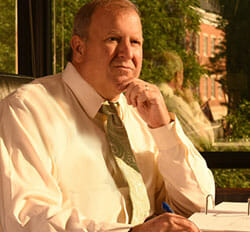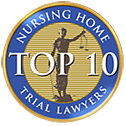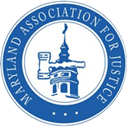Wrongful Death Warning Signs
If a loved one has died while in the care of another you may have very mixed emotions. In addition to sadness and sorrow for your loss, you may also feel betrayed because your trust in a facility was violated and angry because your family member may have died a needless death before his or her time. How do you know if a Maryland facility could be held legally responsible for your loss?
Those who have lost of loved one in the care of a Maryland nursing home, assisted living facility or group home may be able to file a legal action due to the emotional and economic harm caused by the wrongful death of their family member. This lawsuit can be based on an intentional act or one that happened because of the negligence of the defendants involved.
Before the decision can be made to file a lawsuit, the facts of the situation need to be known. An investigation must take place to get a better idea of what happened, why and by whom. There are many situations that are suspicious or frequently happen when facility staff act negligently or intentionally.
Some of the situations that need to be looked into include…
Assault and physical abuse
These crimes take place frequently in elder care facilities, either by staff or other residents. If a staff member committed these actions, the facility may be held responsible for a number of reasons.
- It may have acted negligently because it didn’t properly screen the person’s background before hiring him or her. He or she may have been fired from prior employers due to abuse of residents or may have a violent criminal record.
- The staff member may not have been properly supervised and prior acts against residents were not taken seriously and did not result in discipline.
- Warnings about the employee by fellow staff or residents may have been ignored.
A facility has a duty to keep a resident safe from all potential dangers, including those posed by other residents. All residents need to be properly supervised, and those who are likely to or known to commit violent acts should be removed from the facility or should not have been admitted.
Dehydration and malnutrition
If a resident needs a feeding tube or help with feeding themselves, staff is needed on a daily basis to help keep the person alive. If a facility is understaffed, not enough time is given to make sure the resident gets enough nutrition. If staff is not sufficiently trained in how to feed the person or use feeding tubes correctly, the resident will suffer. Severe dehydration and malnutrition, if not recognized and properly dealt with, can lead to serious injuries, infections and death.
Wandering and elopement
Because facilities have a duty to keep residents safe, they need to make sure they don’t wander within or outside of the facility (known as elopement) into a situation that can lead to injury or death.
- Residents need to be evaluated for the risk of elopement, and how they’re handled by staff needs to reflect that risk.
- Residents need to be sufficiently engaged so they don’t wander simply out of boredom; staff needs to supervise them; certain doors should be locked; and alarms need to be in place if doors are opened by a resident.
- Staff needs to have a plan if a resident wanders from the facility and they must execute the plan quickly so the person can be found before a serious or fatal injury occurs.
If proper steps aren’t taken to prevent elopement or to find the person after it happens, the facility may have acted negligently
Bedsores, pressure or decubitus ulcers
These open sores occur when weakened skin and flesh are in prolonged contact with a bed or chair. If a person has mobility problems, he or she needs to be properly turned to prevent these sores from occurring. If a sore develops, it needs medical attention or it can worsen and become infected, and that infection could be life threatening.
A death caused by a bed sore is a red flag for neglect and negligence by a facility. Residents of a properly run facility with competent staff should not develop bedsores that get to the point they become fatal.
Medical malpractice
Nurses and physicians at facilities may be liable for medical malpractice if they act negligently, fail to provide the acceptable standard of care to residents and someone dies as a result. Medication mistakes may have happened; the wrong test was used or the right one was misinterpreted; a diagnosis may be missed; a condition was not properly treated; or a resident with a serious medical condition may not have been transported to a hospital soon enough. There are any number of mistakes a nurse or physician may make, and depending on the circumstances they may constitute medical malpractice.
The explanation doesn’t make sense
After the death of your loved one the facility may have contacted you with the bad news and offered an explanation. That explanation may not make sense to you, or it may contradict what you know about your family member. An investigation may find medical records with gaps in them; the records may be missing or falsified. Depending on the circumstances, you may want to view security camera footage to see what happened. That request may be denied or for some reason the video may be missing. These are all signs the facility may be trying to cover up what actually happened, another red flag that something seriously wrong happened.
If any of these events occurred or for some other reason you believe your loved one had his or her life cut short because of the actions, or failure to act, of a Maryland nursing home, assisted living facility or group home, contact our office.
Many of the cases handled by the Law Offices of Roger S. Weinberg, LLC involve the loss of a spouse, parent or child. We have the experience and skills to obtain the highest possible compensation for your loss. For compassionate, competent advocacy following the death of your loved one, call 410-825-3161 or use this online contact form to arrange for a free consultation.


 Roger Weinberg is a skilled and experienced attorney who has pioneered the legal field of representing Nursing Home, Assisted Living, and Developmental Disability victims and their families who have experienced abuse, neglect and wrongful death. He is a leader in this field and teaches other lawyers, students and medical personnel about the laws impacting such cases. [
Roger Weinberg is a skilled and experienced attorney who has pioneered the legal field of representing Nursing Home, Assisted Living, and Developmental Disability victims and their families who have experienced abuse, neglect and wrongful death. He is a leader in this field and teaches other lawyers, students and medical personnel about the laws impacting such cases. [ 



